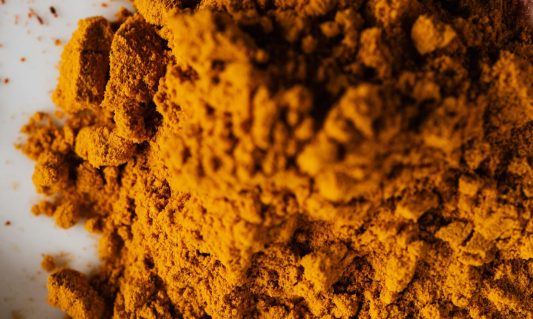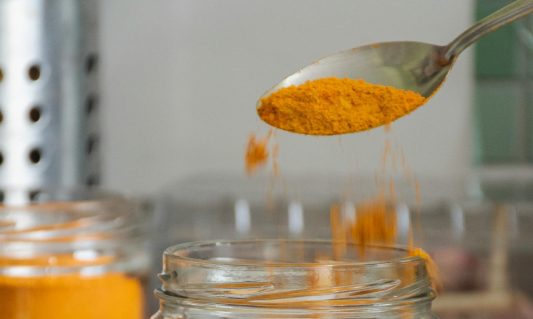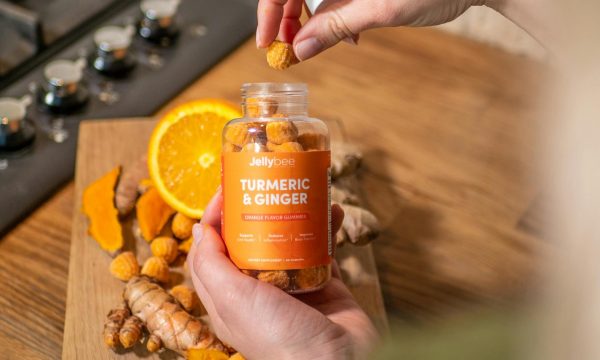For millennia, herbs have been foraged from the earth and used medicinally. Researchers have been studying the benefits of a broad range of herbs and spices, some of which you might have in your kitchen, sitting politely on the spice rack. Curcumin is the active compound found in turmeric — the golden spice from the ginger family native to Southeast Asia, with a long history in Indian Ayurveda medicine.
The anti-inflammatory power of curcumin

The curcumin compound gives turmeric its vibrant golden color, and it’s also a widely-studied antioxidant. Researchers have revealed powerful anti-inflammatory properties of curcumin, partly because it blocks the NF-kB molecule that switches on inflammatory genes, as well as boosting the body’s antioxidant enzymes.
So, what about when it comes to muscle recovery? Recently, researchers explored whether this humble spice could speed up muscle recovery and lower muscle soreness.
Curcumin can reduce muscle soreness post-workout

In a study published in the Journal of the International Society of Sports Nutrition, researchers found that curcumin can lower inflammation, muscle damage brought on by exercise, and post-workout muscle soreness. After looking at 11 studies where participants supplemented curcumin, the researchers concluded that the compound is associated with quicker muscle recovery and reduced muscle pain when the supplement is taken both before and after exercise.
Engaging in resistance training and certain types of exercise, in particular, leads to microscopic muscle damage and tiny tears in the activated muscle fibers. Interestingly, this compound from a colorful spice can help lower that damage and the soreness associated with it. In this study, the researchers found that curcumin decreased inflammatory markers like creatine kinase and interleukin-6, which are associated with muscle damage.

Higher doses of 200-500mg twice daily were linked to the most consistent benefits, and the formulations that also included piperine from black pepper greatly improved absorption. Interestingly, the researchers also found that taking curcumin after exercise appeared to be a little more effective for muscle recovery compared to taking it before a workout.
Growing research on the golden spice

In additional research, the study authors revealed that participants who took curcumin before and after a workout had reduced levels of reactive oxygen species, which are molecules that contribute to oxidative stress in the body. More research is needed to further zone in on the best dosages and formulations of curcumin pre- or post-workout, but the studies thus far are promising.




